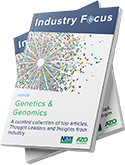effexor xr horror stories
In a recent study published in the Nutrients Journal, researchers evaluated the effects of poor diet quality and lifestyle behaviors (including smoking, buy generic voltaren online o sleep, drinking, and physical activity) on modifying the genomic susceptibility to impulsivity.

Study: Do Poor Diet and Lifestyle Behaviors Modify the Genetic Susceptibility to Impulsivity in the General Population? Image Credit: JuliaSudnitskaya/Shutterstock.com
Background
Impulsivity is a multidimensional and complicated trait that may predispose individuals toward unplanned and rapid responses to external or internal stimuli, with lower regard for negative consequences for impulsive individuals and others. Impulsivity is a core symptom of attention-deficit/hyperactivity disorder (ADHD).
Individuals with maladaptive or excessive impulsivity may develop aggressive behavior and psychiatric diseases, including bipolar disorders and those associated with substance abuse.
Therefore, further research must be conducted on impulsivity to improve understanding of the complex etiology and modifiable factors and improve the affected individuals' prevention and management.
About the study
In the present cross-sectional and observational study, researchers assessed the role of diet, lifestyle, and genetic factors on impulsivity.
The study comprised 33,047 individuals (mean participant age of 42 years, 60% were female) who participated in the Dutch Lifelines study. Indices for diet quality and lifestyle factors were evaluated for their influence on the magnitude of the effect of attention-deficit/hyperactivity disorder polygenic risk scores (PRS) on the extent of impulsivity by linear regression modeling with covariate adjustment.
Principal component analysis (PCA) was performed on the PRS scores, and the initial principal component (PC) was extracted as the final PRS score for attention-deficit/hyperactivity disorder.
Covariates included gender, age, body mass index (BMI), socioeconomic status, income, occupational status, and level of education. To calculate PRS scores, risk allele doses for every single nucleotide polymorphism (SNP) were multiplied by its weight, followed by a summation of all SNPs.
The PRS approach was used in the most recent meta-genome-wide association study (GWAS) on ADHD, comprising 38,691 attention-deficit/hyperactivity disorder patients and 186,843 controls of European ethnicity. Individuals aged below 18 years, with self-documented diagnoses of neurological disorders, missing data on diet quality, genetics, or impulsivity, and those of non-European ethnicity, were excluded from the analysis.
At study initiation, 32 items, selected from 240 items of the NEO personality index, were administered, including impulsivity facet components of the neuroticism scale, the excitement-seeking facet of the extraversion scale, and the self-discipline and deliberateness facets of the conscientiousness scale. Deoxyribonucleic acid (DNA) samples were genotyped, and Sanger sequencing was performed.
Genetics & Genomics eBook

Data on participants' food consumption in the previous month were obtained using 110-item semi-quantitative food frequency questionnaires (FFQ), which were analyzed to estimate the total caloric intake in kcal/day using the 2011 Dutch food composition database. The team assessed reliability by comparing the total daily caloric intake, basal metabolic rate (BMR), and diet quality using inverted lifelines diet score scores (LLDS-I).
Physical exercise was evaluated using the Short Questionnaire to Assess Health enhancing physical activity (SQUASH) questionnaires and the weekly minutes spent in moderate to vigorous intensity of physical activity (MVPA). Sensitivity analysis assessed the inflation in the effect size of ADHD polygenic risk scores based on the interactions between diet, lifestyle, and socioeconomic status.
Results
A significant association between ADHD polygenic risk scores and impulsivity was observed. Poorer diets and greater energy and fat intake were related to greater impulsivity, and the effect of PRS on impulsivity was amplified by greater energy intake.
Lifestyle-associated factors such as sleep duration, smoking habits, alcohol consumption, and MVPA scores were related to greater impulsivity; however, no interaction effects were observed.
In addition, lower age, female gender, higher body mass index values, lower level of education, lower occupational status, more stressful events in the previous year, life-long difficulties, and a history of anxiety and depression were related to greater impulsivity. However, no significant association was found between sugar intake and impulsivity.
In the sensitivity analysis, small but statistically significant correlations were present between ADHD polygenic risk scores and diet indicators, smoking, and sleep duration, indicating the robustness of the main study findings.
Adjusting for diets, lifestyle, and socioeconomic status diet marginally attenuated the effect size of ADHD polygenic risk scores and caloric intake.
Conclusions
Overall, the study findings showed that greater energy intake amplified the relationship between the polygenic load of ADHD and impulsivity.
The study findings highlighted the utility of ADHD polygenic risk scores in explaining impulsivity traits in the general public and corroborated the positive genomic correlations between ADHD and impulsivity measures. However, it is noteworthy that the ADHD polygenic risk scores could explain only a small percentage of variance in trait impulsivity.
Individuals genetically predisposed to ADHD might benefit from decreasing excessive caloric consumption in their regular diet. The study findings underpin the diathesis-stress model of genetic-environmental interactions, wherein stressful environments and genes synergistically exert risks (with the stressor being increased energy intake).
Overall, the findings provide valuable insights into genetic factors and diet's role in impulsivity. Further research is needed to elucidate the molecular mechanisms underlying the diet-gene interactions.
Xie, T. et al. (2023) "Do Poor Diet and Lifestyle Behaviors Modify the Genetic Susceptibility to Impulsivity in the General Population?", Nutrients, 15(7), p. 1625. doi: 10.3390/nu15071625.https://www.mdpi.com/2072-6643/15/7/1625
Posted in: Medical Science News | Medical Research News | Healthcare News
Tags: Alcohol, Allele, Anxiety, Body Mass Index, Depression, Diathesis, Diet, DNA, Education, Exercise, Food, Frequency, Gene, Genes, Genetic, Genetics, Genome, Genomic, Hyperactivity, Nucleotide, Nutrients, Physical Activity, Research, Sanger sequencing, Single Nucleotide Polymorphism, Sleep, Smoking, Stress, Substance Abuse

Written by
Pooja Toshniwal Paharia
Dr. based clinical-radiological diagnosis and management of oral lesions and conditions and associated maxillofacial disorders.
Source: Read Full Article
